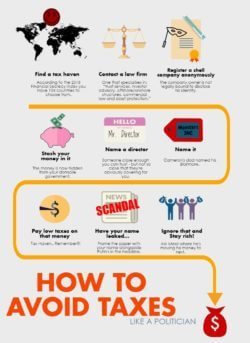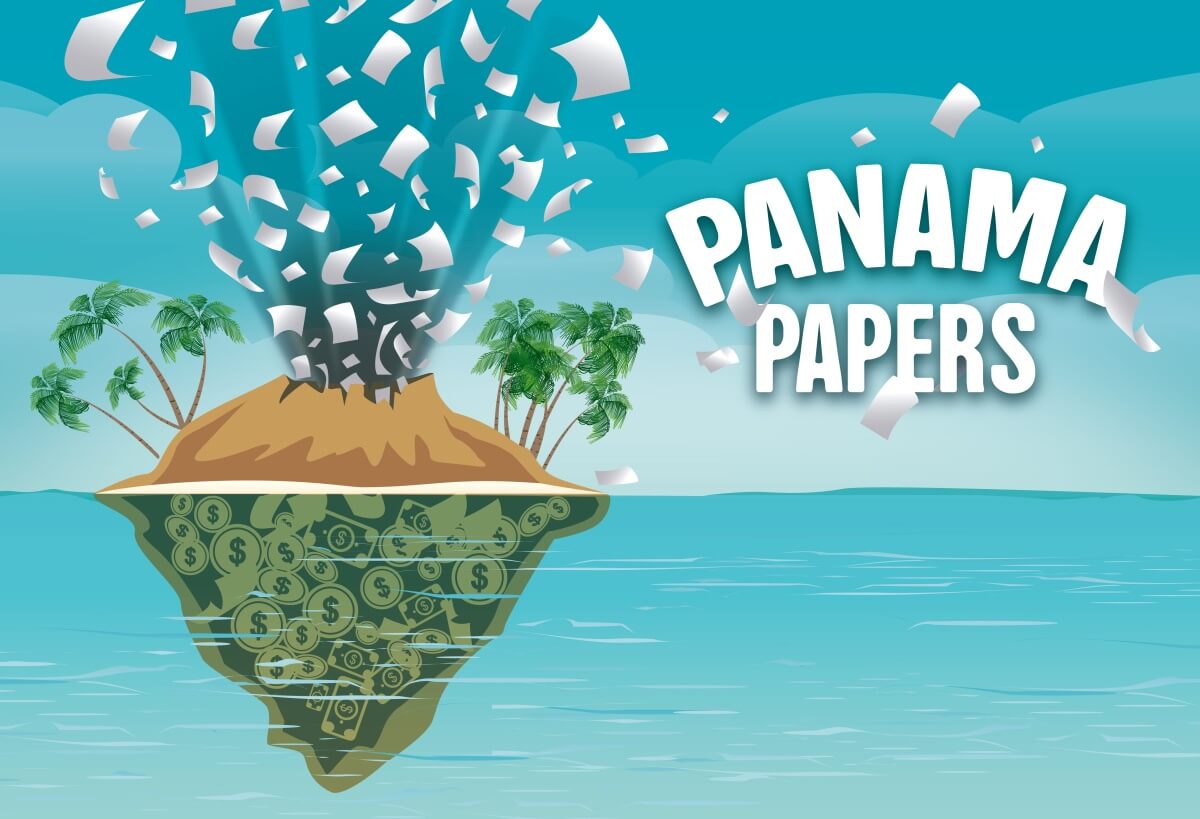Rule NO.1 of Tax Haven Club: NEVER Talk About Tax Haven Club
The ‘Panama Papers’ have re-awakened the pressing doubt that people’s true colours seldom shine.
A series of internal documents (infamously dubbed ‘panama papers’) belonging to a Panamanian law firm were leaked and revealed evidence of major world leaders and celebrities using offshore tax havens. Since the leak, Panama has made a name for itself across the globe as an exceptional hiding spot for large sums of money.
Unfortunately, as far as tax havens are concerned, Panama is absolutely and unsurprisingly unexceptional.
How are tax havens used to avoid taxes?
Tax havens are countries or regions that levy very little or no taxes from foreign individuals and businesses, making it very cheap to keep money away from the prying eyes of corporate tax collectors. This makes for an effective legal way to pay as few taxes as possible, and creates an opportunity available in no less than 104 countries across the world.
The documents disclosed contained confidential information about the interactions of Panamanian law firm, Mossack Fonseca and its clients. The law firm helps foreigners set up shell companies which may, or may not be used for the sole purpose of tax avoidance – although that’s usually a selling point.
Officially, the firm specializes in “trust services, investor advisory, offshore/onshore structures, commercial law and asset protection”. Undressing this literary façade, the law firm works for clients who want to set up an offshore trust or firm, by registering them and compiling the legal local paperwork.
The ‘shell company’ can be set up anonymously, protecting the identity of the owner, and can exist exclusively on paper. The company isn’t required to hire employees or hold offices. A company name and a nominated director are sufficient. By nominating a director, the owner’s name avoids disclosure; the key implication of this secrecy being that it cannot be traced back to its owner through normal legal measures.
The last stepping stone between entrepreneurial spirit and shrewd tax avoidance is the difference in tax arrangements. Usually, taxes would be paid on money under the regulations of the country in which they are earned, but in a tax haven, its own taxation system for foreign money applies. Hence, once money is invested into a ‘shell company’, it is taxed according to the tax haven’s regulations – very lightly, if at all.
The Damage
The leak from Mossack Fonseca contained private documents and emails mentioning names of world leaders, including that of British Prime Minister David Cameron.
David Cameron’s involvement appeared unexpected since he promised to do away with offshore “tax secrecy” in 2013. Cameron admitted he owned shares of the Panama – based offshore trust set up by his father – but sold them in 2010, before entering Downing Street to avoid incriminations about having “other agendas or vested interests”.
At the very least, the British Prime Minister recognizes that using offshore tax havens reveals a lack of integrity that is unacceptable and unappealing in a political leader.
Although most of this tax avoidance probably occurred within legal boundaries, the leak has brought renewed attention to the long-standing issue of untaxed money. There is an estimated 21 trillion dollars ‘hidden’ at the moment on which taxes are not being paid; and it appears the leak is arousing public momentum past the question of legality, and towards that of justice.
Cameron is already experiencing difficulties staying afloat amidst the moral tide on all political levels. Just days after Cameron admitted to profiting from his father’s trust, protesters rallied in London, calling for his resignation. Within parliament, certain members have also refused to sit quietly; Richard Burgon, the shadow treasury minister has expressed that the leak undermines “public trust in the office of prime minister or the principle that those who govern us should pay their tax like the rest of us,” and Dennis Skinner’s referral to Cameron as “Dodgy Dave” in the House of Commons has gone viral on social media. At Exeter University, several weeks ago, Cameron shifted attention onto transnational tax regulations and stated that it was important to tackle tax avoidance at the EU level, and referred back to his efforts during the 2013 G8 Summit. The EU tax commissioner has also commented he will “hit [tax havens] with appropriate sanctions if they refuse to change”.
The EU tax commissioner has also commented he will “hit [tax havens] with appropriate sanctions if they refuse to change”.
The Boar spoke to a Warwick International Political Economy teaching fellow who gave us some insight on the International response scenario to the Panama Papers: “While recent calls for international cooperation regarding tax transparency are to be welcomed, it is important to recognize that politicians’ claims that they will put an end to abuses of secrecy provided by tax havens are overstated, not least because of the limited scope of such proposals and numerous points of disagreement between states regarding their precise characteristics.” The professor used the example of UK’s proposed central registries, whereby owners of offshore companies would have to register. However, they “are unlikely to be mandatory or made public as they are likely to be held in these tax havens, whose stock-in-trade is secrecy.”
He also pointed out that the US, Russia and China have “neglected to support European finance ministers’ intentions to share information relating to the owners of shell companies.” Surely, the strength of global action is the fruit of cooperation – without that of major economic players, decisive measures are difficult to take.
US, Russia and China have “neglected to support European finance ministers’ intentions to share information relating to the owners of shell companies.”
The circumstances have shown the true colours of public political figures. The inkling citizens have that they are not being told the whole truth has proven to be true. The leak has by no means exposed the full complexity of legal tax evasion. Still, it has served as a warning call. It has reminded officeholders that in the technology age, money isn’t power – information is power.
View the full discoveries of the leak here.

Comments